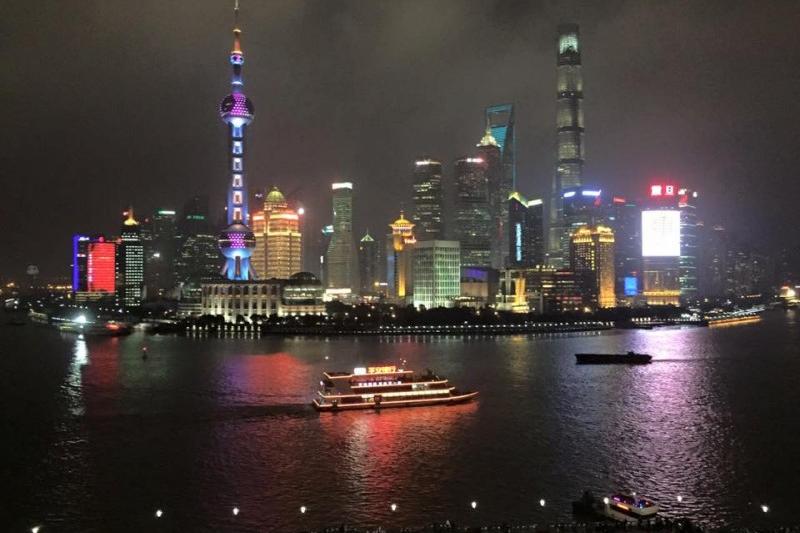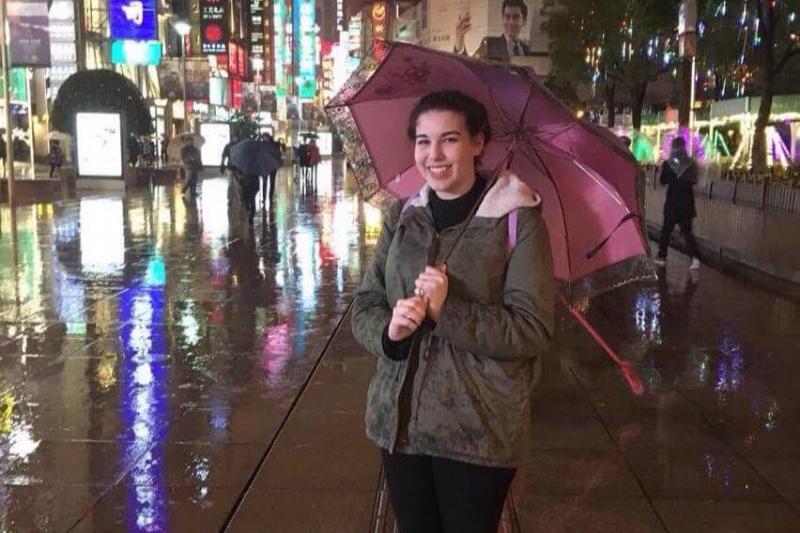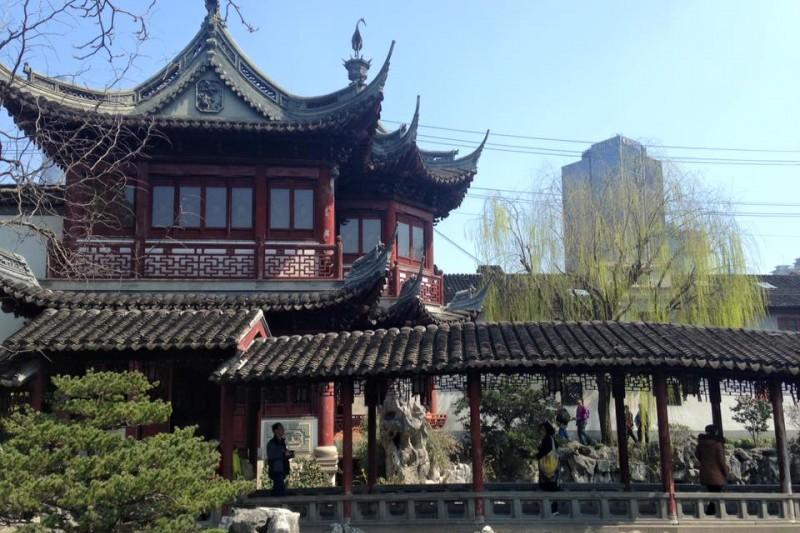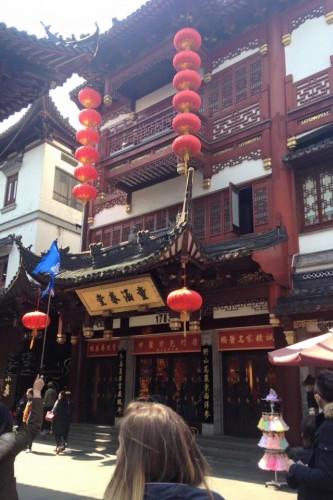An Adventure Made in China

Shanghai at night, taken by English professor and honorary “Trip Dad” Matt Heitzman.
Coming to China, I had no idea what to expect, but I did have a 14-hour flight to ponder what might await me when the plane touched the pavement. The fact that in half a day I would be walking on the other side of the Earth was surreal to me. On the flight, I thought about how in American society, it’s obvious that we have many stereotypes and impressions that view China in a negative light. “Made in China” is synonymous with products being cheap and undesirable. The phrase “shanghaied” means to be swindled or fooled. And in politics, our current president has tweeted that the concept of global warming is a hoax created by the Chinese. And though I’d like to think of myself as a very open-minded person, I was unsure of what to expect visiting a nation that politically dances the line of being friend or foe to the United States. I have always been interested in Chinese history and culture, yet in this modern era under a Communist regime, things were going to be a lot different than what I had seen from the History Channel.
After we stumbled out of the plane, we began the next leg of our journey, driving to a hotel in the center of the teeming metropolis of Shanghai, with a population of nearly 24 million people. What first struck me was how the city seemed to sprawl on and on with no end in sight, with high rises dotting the horizon no matter what direction you look. Our hotel was in Puxi, the historic part of the city, where the architecture along the Bund (the riverside of old Shanghai) looked like a street you could find in London. The European Concessions of Shanghai made the Bund unmistakably western, and though it was beautiful, I couldn’t help but wonder what the cityscape would look like if it had been left untouched. But as I strayed farther from the riverside, I saw the China that I pictured in my mind. Markets and food shops lined every edge of the streets, every block I turned on was aromatic with different types of pork buns or fresh vegetables. Nanjing Road, only a few minutes’ walk from our hotel, was essentially the Times Square of Shanghai. The street featured giant spreads of high-end clothing stores, and the savvy shoppers walking down the street wore designer brands down to their shoes and intricate umbrellas. While the fashion on Nanjing Road ranged from elaborate to stunning, there was nothing more beautiful than the neon lights of the storefronts reflecting in the rain.

I loved taking walks through Puxi, but nothing else in this world compares to the futuristic metropolitan Pudong. The technology and innovation of the Pudong area was incredible, reminding me of the architecture of Disney World’s Future Land. Every sky rise had its own unique aesthetic, curving and twisting into the sky. Even the traffic, as unbearable as it can be, was undeniably high tech. When driving in Shanghai, one can drive on the regular street or on the elevated roads, which tower above the common path like roads in the sky. The public transportation in Shanghai moved at speeds incomparable to SEPTA, with the Maglev train (a train that elevates with magnets, reducing friction and increasing speed) breaking through the Chinese landscape like a bullet (to be exact, 268 miles per hour).

After the day at the gardens, our class traveled to Zhenjiang, a neighboring province, where we would spend the next few days at Jiangsu University. During our time there, I had the opportunity to become friends with a Chinese university student whose English name was Ray. Over dinner one night, I had to ask him something that was itching on the back of mind–his opinion of the government. I reassured him that if he felt uncomfortable talking about it, I totally understood, but he gave me a shy smile and said that it was fine. He went on to say that he doesn’t like the Communist government very much, but he feels conflicted because he loves China and its history. Talking to him, I realized that in America, young people are encouraged to use their voices and become activists for what they’re passionate about. But in China, it wasn’t too long ago where such openness about one’s political leanings wasn’t only discouraged, it was a criminal offense. Yet the subtlety in his opinions wasn’t only for this reason; it’s also because of the Chinese mindset of supporting your home and your community. He elaborated that though the Chinese government was not ideal, he’s proud of where he’s from and wants to make it better rather than cast it away. Our conversation over barbecued pork and chicken feet on a skewer made me realize that though our governments are vastly different, we as people have much in common and a lot we could learn from each other.

One of the traditional buildings in the marketplace.
On the last day of our adventure, one of our trip advisors, Matt (affectionately referred to as “Trip Dad” by us), remarked how seeing our class interact so genuinely with the Jiangsu University students gave him hope for the future. That statement really struck me. Through the whole trip, the growing tension between our nations didn’t surface in my mind once. The media and government will sometimes paint the U.S. and China as enemies, but the Chinese people were incredibly hospitable to us, and we became great friends with the Jiangsu students (you can’t help but become close after an intense night of karaoke). The future relations between the U.S. and China is unclear and the Chinese students seemed as unsure about the course of their country as many Arcadia students feel about our own. But I think when the future is unclear, you can really get a sense of one’s determination, worries, and optimism. The resounding message I left with from our trip is that the actions and words of the Chinese government do not accurately represent every Chinese citizen, just as the American government in its current state isn’t a representation of my values. I’m glad I visited China in this current era, where things are rapidly developing, zooming toward the future while trying to keep in touch with the past. And even more, I’m glad I have a new group of friends waiting to see me again on the other side of the world.



